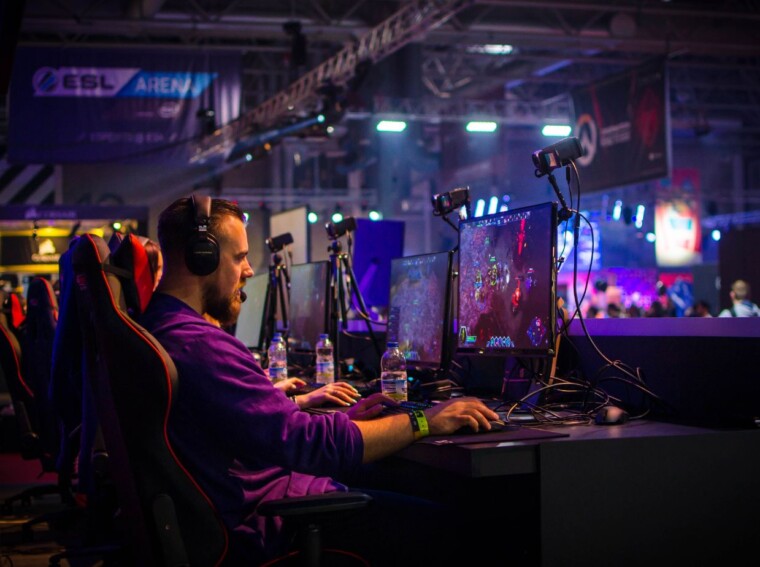In recent years, the convergence of esports and traditional sports has become increasingly evident, presenting a myriad of opportunities for collaboration and synergies between these seemingly distinct realms. With a decade of experience in the esports industry, it’s clear that the boundaries between virtual and physical sports are blurring, opening up avenues for innovative partnerships that benefit both industries. Including the betting industry, where cs2 gambling sites, as well as platforms for betting on other games, are increasingly turning to virtual reality technologies.
This article delves into how collaborations between esports and traditional sports can lead to mutual growth and success.
Leveraging Shared Fanbases and Brand Affinities
One of the most compelling reasons for collaboration between esports and traditional sports is the shared fanbases and brand affinities between the two. Many esports enthusiasts are also avid followers of traditional sports, and vice versa. Leveraging this overlap, sports organizations have begun to invest in esports teams and tournaments, recognizing the potential to tap into a new audience demographic.
Real Madrid’s venture into esports is a prime example of this synergy. The football giant established its esports division, signing professional players to compete in popular titles like FIFA and Pro Evolution Soccer. By leveraging its existing brand recognition and fanbase, Real Madrid successfully expanded its reach into the esports realm, engaging with a younger audience segment while staying true to its core identity.
Furthermore, esports’ appeal extends beyond geographical boundaries, allowing sports organizations to connect with fans on a global scale. This global reach presents opportunities for traditional sports brands to expand their influence into new markets where esports enjoy significant popularity. By aligning with esports, sports organizations can strengthen their brand presence and forge deeper connections with fans worldwide.
Enhancing Training and Performance through Esports
Esports isn’t just about entertainment; it also offers valuable training and performance enhancement opportunities for traditional athletes. Many sports teams have incorporated esports simulations into their training regimens to improve strategic thinking, decision-making, and reflexes.
The NBA’s partnership with Take-Two Interactive, the developer behind the NBA 2K series, exemplifies this trend. Through the NBA 2K League, professional basketball teams draft esports players to represent them in a virtual basketball league. This collaboration enhances player skills and fosters a deeper connection between fans and their favorite teams, blurring the lines between virtual and physical sports experiences.

Similarly, soccer clubs like Paris Saint-Germain (PSG) have embraced esports as a tool for player development. PSG Esports competes in various titles, including FIFA and Fortnite, providing players with opportunities to hone their skills in a competitive gaming environment. By integrating esports into their training programs, sports teams can gain a competitive edge and prepare athletes for the increasingly digital landscape of modern sports.
Expanding Revenue Streams and Monetization Opportunities
Collaborations between esports and traditional sports present lucrative revenue generation and monetization opportunities. From sponsorship deals to broadcast rights and merchandise sales, the fusion of these industries creates diverse income streams for stakeholders.
The Formula 1 Esports Series is a testament to this potential. By partnering with game developer Codemasters, Formula 1 launched an official esports championship that mirrors the real-world racing experience. This initiative attracts new sponsors and advertisers and engages fans in innovative ways, driving ticket sales and merchandise revenue both online and offline.
Additionally, esports events offer unique opportunities for brands to connect with consumers authentically and meaningfully. Unlike traditional advertising channels, esports sponsorships allow brands to integrate seamlessly into the gaming experience, reaching audiences where they are most engaged. Traditional sports brands can elevate their visibility and relevance among younger demographics by sponsoring esports tournaments and teams, driving brand affinity and customer loyalty.
Fostering Innovation and Cross-Pollination of Ideas
The most significant benefit of collaborations between esports and traditional sports is fostering innovation and cross-pollination of ideas. Both industries can evolve and adapt to changing trends and consumer preferences by exchanging knowledge and best practices.
The partnership between the Overwatch League and traditional sports franchises exemplifies this collaborative spirit. Several NFL and NBA team owners have invested in Overwatch League teams, bringing their sports management and marketing expertise to the esports arena. This exchange of ideas has led to innovative fan engagement strategies, such as watch parties and community events, that enhance the overall esports experience.

Furthermore, the convergence of esports and traditional sports has spurred technological advancements and creative solutions to enhance player and fan experiences. From virtual reality training simulations to interactive live streams, collaborations between these industries drive innovation and push the boundaries of what’s possible in sports entertainment.
Conclusion
As esports continues to gain mainstream recognition and traditional sports seek new avenues for growth, the collaboration between these industries is inevitable. By leveraging shared fanbases, enhancing training and performance, expanding revenue streams, and fostering innovation, esports and traditional sports can bridge the gap and create synergies that benefit both players and fans alike. As we look to the future, it’s clear that the boundaries between virtual and physical sports will continue to blur, opening up new opportunities for collaboration and mutual success. Through strategic partnerships and a shared commitment to innovation, esports and traditional sports can thrive in a rapidly evolving landscape, shaping the future of sports entertainment for generations to come.
